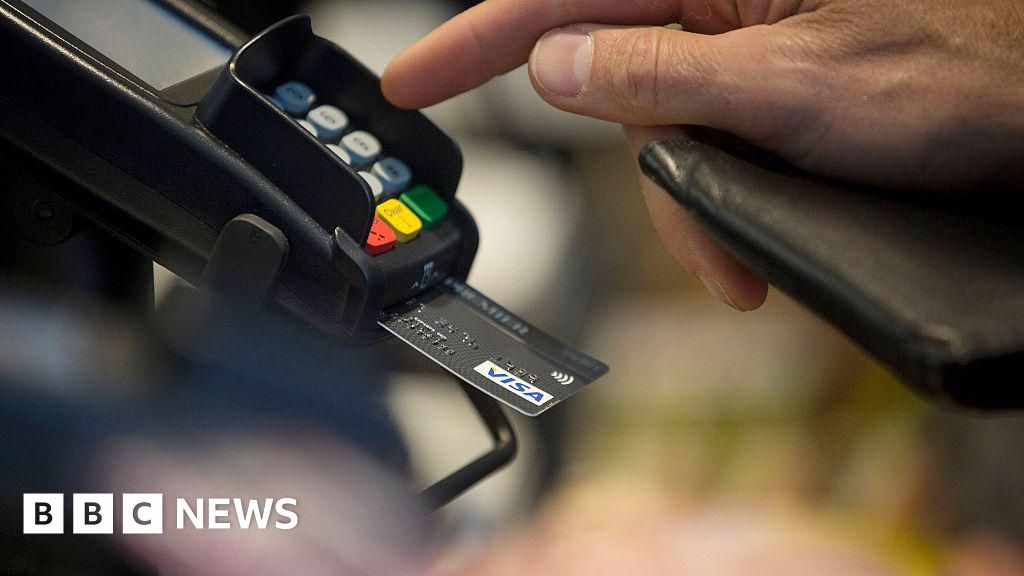US accuses Visa of debit card monopoly

The US has filed a lawsuit against Visa, accusing the financial giant of illegally stifling competition to maintain a monopoly over the debit card market.
It said Visa had punished companies that wanted to use alternative payment networks and paid off potential competitors to keep its hold over the market.
The Department of Justice said the moves had slowed innovation and led to significant additional fees for American consumers and businesses.
Visa said the claims were “meritless” and it would defend itself in court.
Julie Rottenberg, Visa’s general counsel, said businesses and consumers chose Visa because of its “secure and reliable network”.
“Today’s lawsuit ignores the reality that Visa is just one of many competitors in a debit space that is growing, with entrants who are thriving,” she said.
“This lawsuit is meritless, and we will defend ourselves vigorously.”
The filing against Visa is the latest competition lawsuit from the Biden administration, which has taken a more aggressive approach to monopoly concerns, known as antitrust in the US, than previous administrations.
The company’s practices have also faced lawsuits and scrutiny from merchants and competition regulators in other parts of the world including in Europe and Australia.
The Department of Justice started investigating Visa in 2021.
The company processes more than 60% of debit transactions in the US, according to the complaint, bringing in $7bn in fees annually. As of 2022, its debit card business was bigger by revenue than its credit card unit, and highly profitable.
Attorney General Merrick Garland said Visa’s dominance had allowed it to extract fees that were far higher than it could have charged in a “competitive market”.
“Merchants and banks pass along those costs to consumers, either by raising prices or reducing quality or service,” he said. “As a result, Visa’s unlawful conduct affects not just the price of one thing – but the price of nearly everything.”
Shares in the firm fell more than 5%.
The lawsuit, filed in federal court in New York, said Visa had used a “web of contracts” that required businesses to commit to routing a certain volume of transactions to the Visa network or face higher fees – effectively creating illegal “exclusive deals”.
It said the firm started making such deals after a new law in 2012 tried to bolster competition in the debit market, by requiring that banks make debit cards usable on at least two competing payment networks.
The Department of Justice said Visa also used its dominance of the market to threaten tech firms such as PayPal with significant fees, unless they signed deals committing them to routing payments through the firm.
It asked the court to rule that Visa is a monopoly and bar it from continuing the alleged “anticompetitive” practices.
George Alan Hay, a professor at Cornell Law School and expert in antitrust law, said the case was not radical, but would still be a challenge for the government.
Among the sore points, he said, would be the question of how the debit card market is defined – and whether 60% is enough to constitute a monopoly.
“It’s going to be difficult,” he said.
He added that Visa, after facing scrutiny from regulators for decades, will have anticipated litigation while structuring its fees.
“They’re going to have answers,” he said. “It’s not like this is sprung on them by surprise.”
Related
What’s at stake for American culture with Trump’s Kennedy Center…
In her two decades as a human rights lawyer, working on issues in more than 25 countries, Hadar Harris says she is alarmed by what she's witnessing on U.S. soil
Denmark lost 52 soldiers fighting alongside the US. Now it…
Nick BeakeEurope correspondentBBCAll his adult life, Colonel Soren Knudsen stepped forward when his country called. And when its allies did.He fought alongside
As Trump upends foreign policy, Berkeley scholar sees irreparable damage…
Last week’s Oval Office blowup with Ukrainian President Volodymyr Zelensky exemplified what many foreign policy experts have long feared: that th
Trump creates a task force for the North American 2026…
President Donald Trump creates a task force to prepare for the 2026 W











